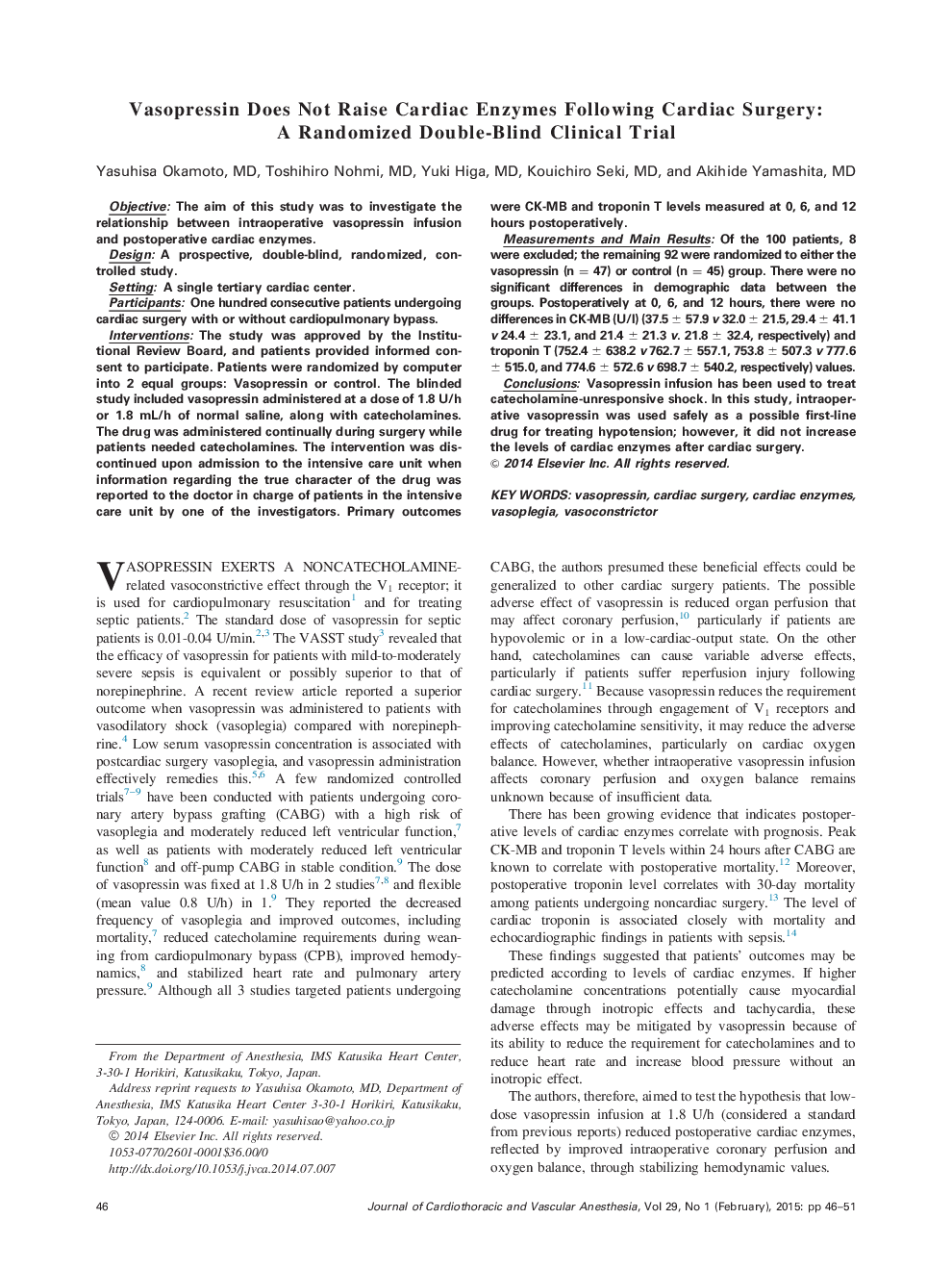| Article ID | Journal | Published Year | Pages | File Type |
|---|---|---|---|---|
| 2758925 | Journal of Cardiothoracic and Vascular Anesthesia | 2015 | 6 Pages |
ObjectiveThe aim of this study was to investigate the relationship between intraoperative vasopressin infusion and postoperative cardiac enzymes.DesignA prospective, double-blind, randomized, controlled study.SettingA single tertiary cardiac center.ParticipantsOne hundred consecutive patients undergoing cardiac surgery with or without cardiopulmonary bypass.InterventionsThe study was approved by the Institutional Review Board, and patients provided informed consent to participate. Patients were randomized by computer into 2 equal groups: Vasopressin or control. The blinded study included vasopressin administered at a dose of 1.8 U/h or 1.8 mL/h of normal saline, along with catecholamines. The drug was administered continually during surgery while patients needed catecholamines. The intervention was discontinued upon admission to the intensive care unit when information regarding the true character of the drug was reported to the doctor in charge of patients in the intensive care unit by one of the investigators. Primary outcomes were CK-MB and troponin T levels measured at 0, 6, and 12 hours postoperatively.Measurements and Main ResultsOf the 100 patients, 8 were excluded; the remaining 92 were randomized to either the vasopressin (n = 47) or control (n = 45) group. There were no significant differences in demographic data between the groups. Postoperatively at 0, 6, and 12 hours, there were no differences in CK-MB (U/l) (37.5 ± 57.9 v 32.0 ± 21.5, 29.4 ± 41.1 v 24.4 ± 23.1, and 21.4 ± 21.3 v. 21.8 ± 32.4, respectively) and troponin T (752.4 ± 638.2 v 762.7 ± 557.1, 753.8 ± 507.3 v 777.6 ± 515.0, and 774.6 ± 572.6 v 698.7 ± 540.2, respectively) values.ConclusionsVasopressin infusion has been used to treat catecholamine-unresponsive shock. In this study, intraoperative vasopressin was used safely as a possible first-line drug for treating hypotension; however, it did not increase the levels of cardiac enzymes after cardiac surgery.
